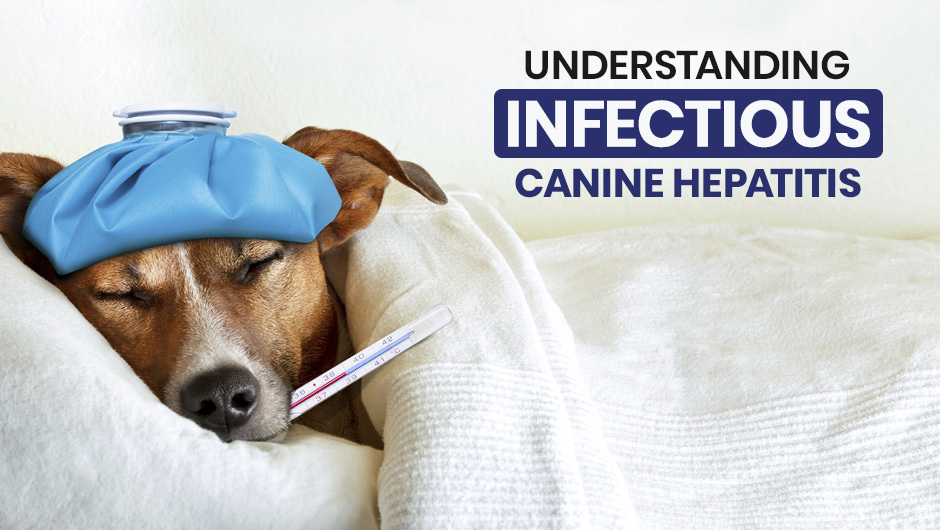Infectious canine hepatitis is a highly contagious disease that primarily affects puppies under one year old and unvaccinated adult dogs. It’s not as common in the United States as it is in other countries, but it’s still important to know the symptoms and prevent your dog from acquiring it. This condition causes damage to a dog’s liver, spleen, kidneys, eyes, and lungs. Infection can range from mild to severe or even death in extreme cases.
The virus canine adenovirus-1 is responsible for causing a full-blown case of infectious canine hepatitis. Dogs can pick up the virus through direct contact with the urine, feces, or saliva of another infected dog. It can be as simple as being near a dog with the disease who sneezed or eating from the bowl that an infected dog licked clean. The virus incubates for up to 10 days and then enters the new dog’s bloodstream.
Symptoms of Mild and Severe Infectious Canine Hepatitis
When your dog contracts a mild form of this disease, he will display a low-grade fever, decreased appetite, and lethargy. A mild case usually requires no treatment and resolves on its own in two to three days.
During a severe infection, your dog can have a high fever for up to a week. Other symptoms include bloody vomit or diarrhea, tucking the belly to relieve pain in the liver, light sensitivity, and refusal to eat. At this advanced stage, death can occur within hours without veterinary intervention. Other indications of a possible fatality include an enlarged abdomen, seizures, disorientation, and bleeding from the nose and gums.
Diagnosing and Treating Infectious Canine Hepatitis
When you bring your dog to Minnesota Veterinary Hospital, we review her complete history and conduct a thorough physical exam. This typically includes a chemistry panel, enzyme testing, and immunofluorescence to illuminate the virus. We may use a combination of these tests or other tests to rule out health conditions with similar symptoms, such as parvovirus and distemper.
Treatment may include a combination of IV fluids, a broad spectrum antibiotic, or a blood transfusion in severe cases. We may ask you to feed your dog smaller meals more frequently throughout the day until his normal appetite returns. You may notice eye cloudiness for a while even after applying ointment. This should eventually go away on its own. He may shed the virus through urination for several months after treatment, but will be immune from developing it again.
Prevention is the Way to Go
Vaccination with the canine adenovirus-2 virus protects your dog from this disease as well as a common condition called kennel cough. We recommend combining this vaccine with the parvovirus and distemper vaccines during your puppy’s first several weeks of life. An annual booster will provide her with lifelong immunity.
Please contact us with additional questions or to schedule a vaccine appointment.
Photo Credit: damedeeso / iStock Photo

